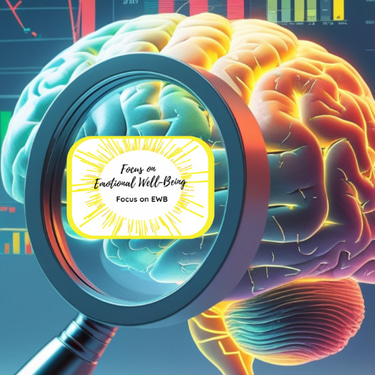Understanding Emotional Well-Being for Women

Emotional well-being is a vital component of overall health, particularly for women navigating the complexities of modern life. It encompasses a range of factors, including self-acceptance, resilience, and the ability to manage stress and maintain fulfilling relationships. Emotional well-being is not merely the absence of mental illness; it is a proactive state of mind characterised by emotional stability, satisfaction, and a sense of purpose. Understanding this concept is essential, as it lays the groundwork for a healthier, happier life.
One key aspect of emotional well-being is self-awareness. Women often juggle multiple roles: caregiver, professional, partner and mother and tend to prioritise others' needs over their own. Cultivating self-awareness allows women to identify their emotions and understand how these feelings impact their behaviour and interactions with others. This insight is crucial for making informed choices that foster emotional health. By recognising and validating their emotions, women can better navigate challenges and enhance their well-being.
Resilience is another critical element of emotional well-being. It refers to the ability to bounce back from setbacks and adapt to challenges. Developing resilience can empower women to confidently face life's inevitable ups and downs. Techniques such as mindfulness, cognitive reframing, and building a strong support network can enhance resilience. By fostering a resilient mindset, women can improve their emotional endurance, leading to better coping strategies and a more positive outlook.
Additionally, emotional well-being is closely tied to relationships. The quality of interpersonal connections significantly influences emotional health. Women often thrive in supportive environments where they feel valued and understood. Healthy communication, setting boundaries, and nurturing relationships with family, friends, and colleagues contribute to a sense of belonging and security. These connections provide support during difficult times and enhance joy and fulfilment during positive experiences, reinforcing the importance of emotional well-being in daily life.
Lastly, emotional well-being has a profound impact on longevity. Research indicates that individuals with higher emotional well-being tend to experience better physical health outcomes, reduced stress levels, and longer lifespans. For women, recognising the interplay between emotional and physical health is crucial. By prioritising emotional well-being through self-care, resilience-building, and nurturing relationships, women can create a strong foundation for a long, healthy life. Ultimately, understanding and defining emotional well-being is an exploration of feelings and a pathway to empowerment and longevity.
